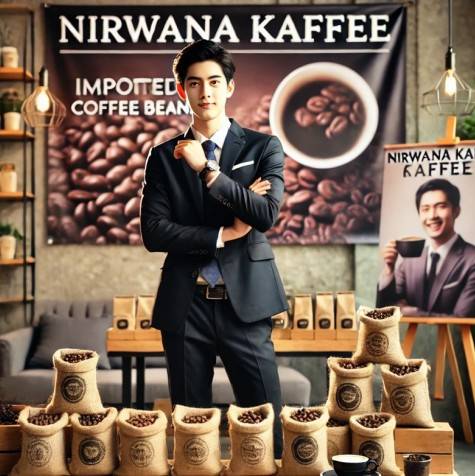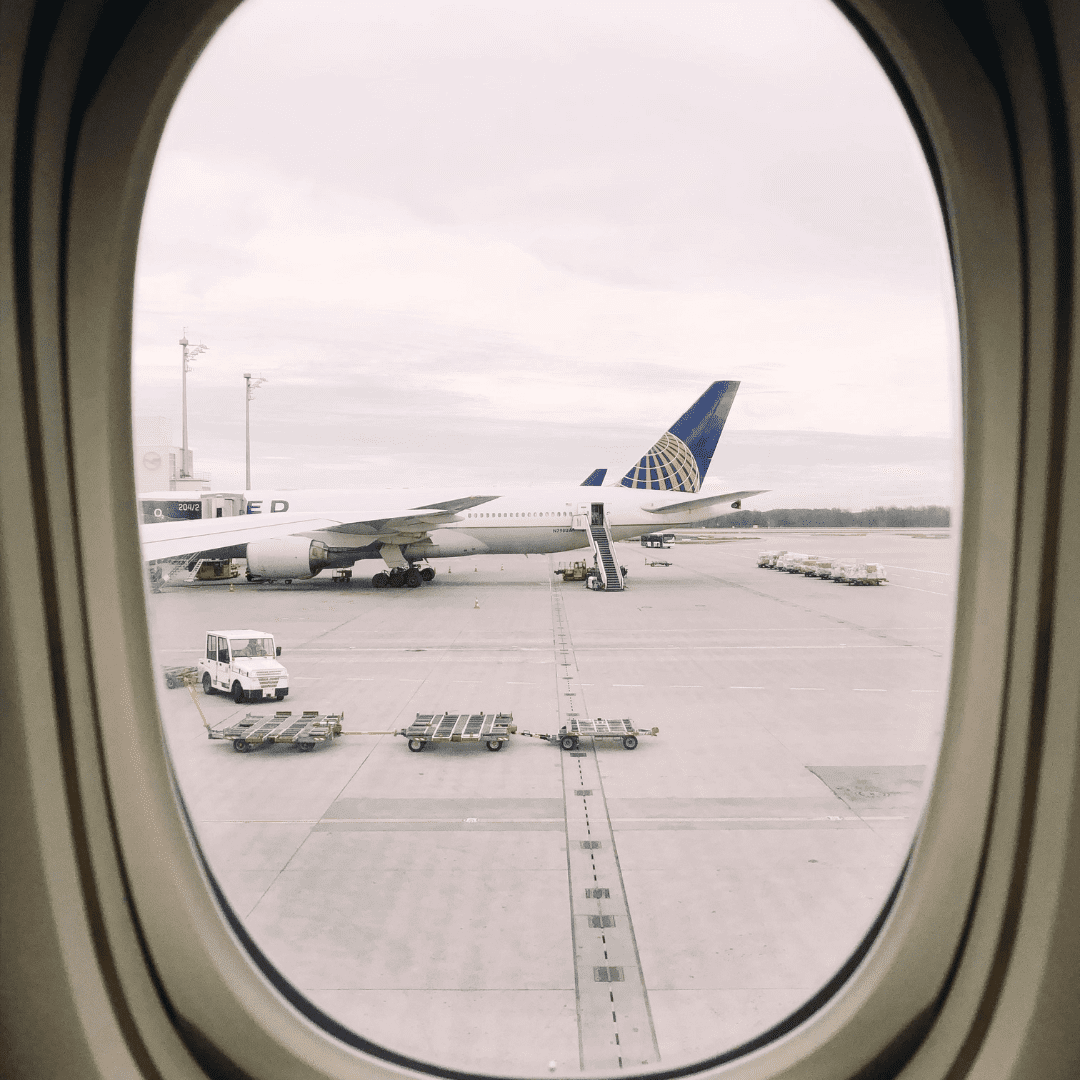
A personal Update from the Chancellor – 10 Years New European College
11. February 2025
Update from the Chancellor – Beauty $$$, Pretty Hotels, Soap & a Ghost
7. April 2025Context
Coffee is one of the world’s most traded agricultural commodities, with an estimated global market value exceeding $100 billion. The industry employs over 25 million people worldwide, primarily in developing countries where coffee is grown. From its cultivation in the “Bean Belt” around the equator to its consumption in cafes and homes around the world, coffee passes through a complex value chain involving farmers, processors, exporters, importers, roasters, retailers, and finally, consumers. In recent years, the coffee industry has experienced significant transformation.
Climate change threatens traditional growing regions, while changing consumer preferences have fueled the rise of specialty coffee. This premium segment focuses on high-quality beans, sustainable farming practices, and transparent sourcing—shifting away from the commodity market dominated by major corporations. Germany stands as Europe’s largest coffee market, with per capita consumption averaging 5.5 kg annually. German consumers increasingly value quality and sustainability, creating opportunities for specialty coffee businesses that can effectively communicate their value proposition. However, the German market presents unique challenges, including a complex taxation system for coffee imports and intense competition from established players.
In this evolving landscape, a New European College to-be-graduate established Nirwana Kaffee, a specialty coffee importing and distribution business based in Germany. The company sources high quality beans directly from farmers, emphasizing sustainable farming practices, fair compensation for producers, and premium quality for consumers. Nirwana Kaffee faces the classic challenges of a startup entering a competitive market: building brand awareness, establishing distribution channels, managing supply chain complexities, and scaling operations while maintaining quality and values
About Nirwana
Nirwana began in 1997 with Saif Ullah Bajwa, who wanted to bring the rich flavors of authentic Indian food to Frankfurt (Oder), Germany. His restaurant became known for high-quality dishes that made people happy.
In 2023, his son, Harmaz Bajwa, found a new passion at the Coffee Expo in Athens. As he enjoyed different coffee flavors, he had a big idea—why not bring the same love for great taste to coffee? That’s how Nirwana Coffee was born. Inspired by the pure happiness of the first sip, Harmaz carefully selected bold Colombian coffee and fruity Ethiopian beans to create a unique coffee experience.
As a proud member of the German Coffee Association, Harmaz continues Nirwana’s tradition of excellence, now through the world of coffee.
Their promise :
🌍 Eco-Friendly – We care about the planet and use sustainable methods.
🤝 Fair & Honest – We support local farmers and communities.
☕ Top Quality – Every cup is made with passion and perfection.
💡 Strong Leadership – Our team is always working to make things better.
🏡 Great Workplace – We value creativity, teamwork, and respect.
From delicious food at Nirwana Restaurant to rich, flavorful coffee at Nirwana Coffee, they invite you to enjoy every moment. Because they believe good food, great coffee, and happy moments go hand in hand.
Fact about the coffee market
Germany’s Coffee Imports and Market Dynamics
- Germany imported approximately 1.09 million tons of coffee in 2023, marking a decline from previous years.
- The country remains home to several leading coffee processing companies.
- Brazil is Germany’s primary supplier, providing 369,900 tons of coffee in 2022, down from 422,155 tons in 2021.
- Import prices of coffee beans in Germany increased by 16.4% in 2024 compared to the previous year.
Global Coffee Production and Trade
- Global coffee production reached 178 million 60-kilogram bags in 2022/2023, up from 169 million in the prior year.
- South America, led by Brazil, remains the largest coffee-producing region, producing 89.3 million 60-kilogram bags in 2023.
- Global coffee imports during 2023/24 totaled 137 million 60-kilogram bags, while exports amounted to 142 million bags.
- The United States is the largest coffee import market, followed closely by Germany.
Arabica vs. Robusta: Price and Market Trends
Coffee production is centered around two primary species: Arabica and Robusta.
Arabica coffee:
- Known for its smoother and more aromatic profile.
- Priced at 2.93 USD/kg in 2018, projected to rise to 4.8 USD/kg by 2026.
- Production in 2022/23 was 87.3 million 60-kilogram bags, expected to surpass 97 million in the next year.
Robusta coffee:
- Hardier and grows across a broader range of climates.
- Priced at 1.87 USD/kg in 2018, projected to reach 3.9 USD/kg by 2026.
The Future of the Coffee Market
- The industry faces challenges such as climate change, fluctuating demand, and economic shifts impacting global trade.
- Coffee prices continue to rise, influencing both consumer preferences and market dynamics.
- Germany remains a key importer and processor, while Brazil continues its dominance in global coffee production.
- Sustainable and efficient supply chain operations will be crucial in navigating future market trends.
Purpose of the project
This block students will solve a real-life business case focusing on the global coffee industry, with particular emphasis on the German coffee market and a startup specialty coffee importer, Nirwana Kaffee. The core of the assignment will be to analyze the worldwide coffee market, understand the German coffee ecosystem, and provide strategic recommendations to help Nirwana Kaffee grow its business sustainably in a competitive landscape.
Evaluation Process
1. Depth and Quality of Research : Evaluation will be based on the thoroughness of understanding the global coffee market and German coffee industry dynamics, including the use of diverse and
credible sources.
2. Critical Analysis and Insight : Assessment will focus on the ability to critically evaluate the role of specialty coffee importers like Nirwana Kaffee in the market and identify key challenges
and opportunities.
3. Clarity and Structure : Marks will be given for the clarity of expression, logical organization of content, and coherent presentation of arguments throughout the assignment.
4. Application of Theoretical Concepts : Students will be evaluated on their ability to apply theoretical concepts to real-world examples, demonstrating an understanding of value chains,
market dynamics, and business strategy.
5. Originality and Creativity : Credit will be given for original thought, the inclusion of novel perspectives, and creative approaches to addressing the challenges within the specialty coffee
industry.
6. Pitch Presentation: A 5-minute summary of the findings and overview of the direction.
7. Presentation: A 15-minute presentation covering key findings and strategic recommendations, based on research findings.
The Academic Challenge – Understanding Market Positioning and Strategic Growth in the Coffee Industry














